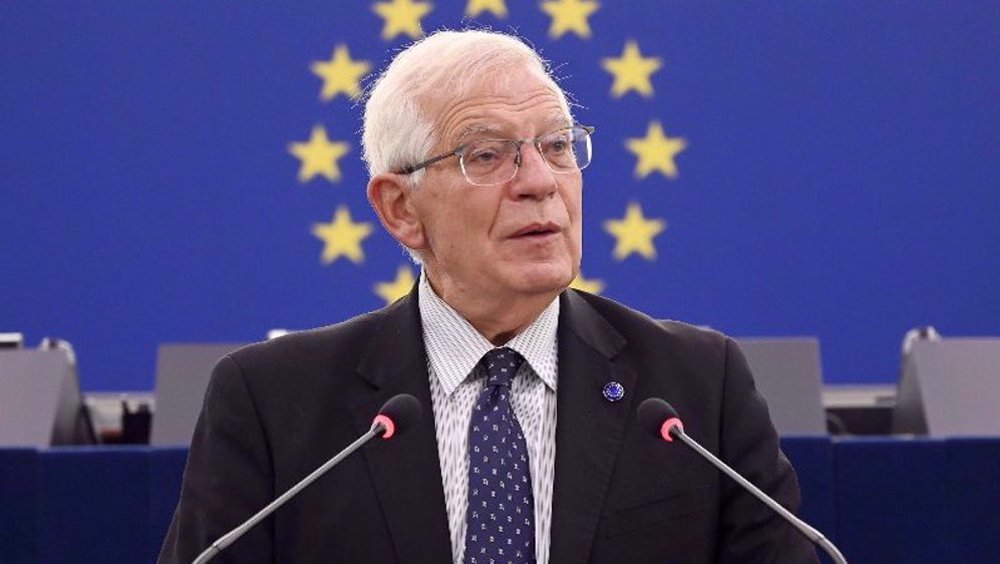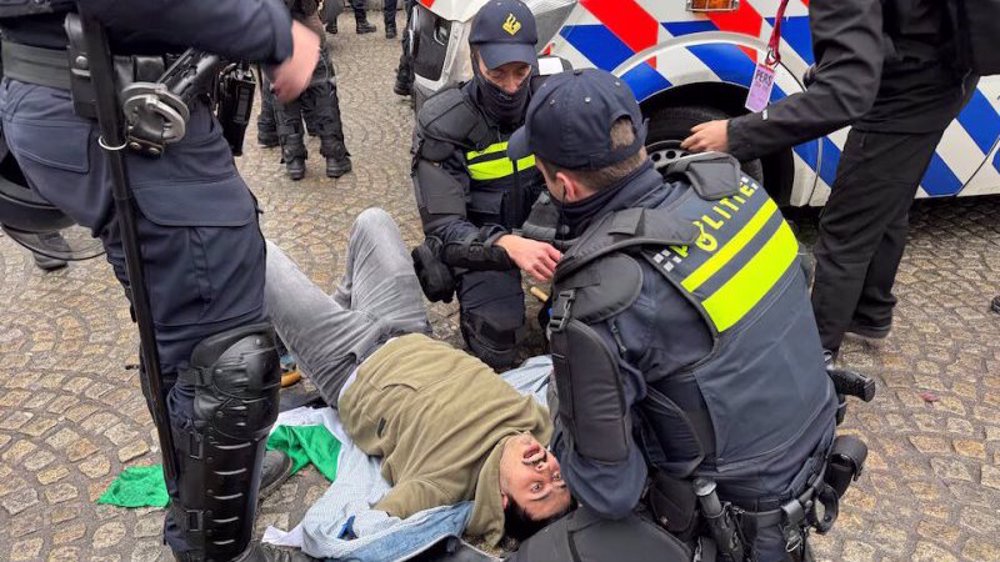Austria enforces plan to limit daily refugee numbers
Austria was to impose daily caps on Friday on the number of refugees entering the country despite EU warnings that the move runs contrary to the 28-nation bloc’s law.
Vienna said it would implement the plan to only let in 3,200 people a day, adding it is also slated to limit the number of asylum claims at 80 a day from Friday.
“I am very happy with our decision and we will stick to it,” Interior Minister Johanna Mikl-Leitner as she arrived for a summit of EU leaders, adding Vienna “will have to reduce these upper limits further.”
The decision comes despite a warning by the EU’s top migration official, who said the plan is against the continental body’s law.
“What the Austrians have decided is not according to European laws,” EU Migration Commissioner Dimitris Avramopoulos said on Thursday.
“There are some principles and laws that all countries must respect and apply,” he added.
On Thursday, Austria’s interior minister brushed aside criticism of her country’s plan to limit daily refugee numbers, saying the plan would be put into operation as foreseen.
She said Germany’s past decision to introduce limits remains legal and “is of course also so for Austria.”
Europe is facing an unprecedented influx of refugees who are fleeing conflict-ridden zones in Africa and the Middle East, particularly Syria.
The continent has failed to come up with a coherent and effective response to the worst refugee crisis since World War II.
Most asylum seekers have tended to use Austria, a key place of transit in 2015, as a means of reaching Germany.
Merkel’s open-door policy ‘total failure’
Some 1.1 million asylum seekers entered Germany last year, sparking heavy criticism of Chancellor Angela Merkel’s open-door refugee policy.
Russia and France have criticized Merkel’s policy for the inflow, saying the strategy is a “total failure” and not sustainable in the long run.

“European migration policy is a total failure, all that is absolutely frightening,” Russian Prime Minister Dimitry Medvedev said in an interview with the leading German language business newspaper Handelsblatt last week.
Medvedev further noted that he attaches “great value to humanity” and wants “to help refugees” displaced by conflicts in their homelands
The Russian premiere, however, warned that “among these people, there are also many, perhaps hundreds, or even thousands, of thugs who have come to Europe on a ‘countdown mission.’
In similar remarks last week, French Prime Minister Manuel Valls said Merkel’s policy was “unsustainable in the long term,” saying Europe “has to regain control over its borders, over its migration or asylum policies.”
On January 30, Merkel defended her refugee policy, arguing that asylum seekers from Syria and Iraq would go back home once the conflicts there end.
“We need ... to say to people that this is a temporary residential status and we expect that once there is peace in Syria again, once IS (Daesh) has been defeated in Iraq, that you go back to your home country with the knowledge that you have gained,” she said.
Austria deported hundreds of refugees back to neighboring Slovenia in December 2015 on the ground that they had allegedly lied about their nationality in a failed attempt to be granted asylum.
Observers say major European powers are to blame for the exodus as their policies have led to a surge in terrorism and war in those regions, forcing more people to flee their homes.

‘Demonizing Muslims’
Certain Western media outlets, along with far-right activists, have taken advantage of the refugee crisis unfolding in Europe to fuel Islamophobic sentiments across the continent.
Earlier this week, Polish w Sieci magazine published a cover showing a white woman being groped on all sides by dark-skinned hands, with “The Islamic Rape of Europe” as headline for its front page.
It was reminiscent of art and literature from the earliest days of European colonialism, regularly depicting brown and black “savage” man sexually abusing innocent white woman.
The imagery is a direct allusion to the recent allegations of refugee men sexually abusing women in Cologne, the western German city, and other European cities.
At least 120 women have told police they were sexually assaulted or robbed by a gang of men “of North African or Arab appearance” near Cologne's main train station on New Year’s Eve. Among the women, two were reportedly raped.
A 13-year-old girl later confessed to concocting claims that she was kidnapped and raped by migrants after her allegations triggered outrage and a diplomatic dispute between Germany and Russia.
Diplomat discourages recourse to pressure, intimidation, confrontation against Iran
UN: 2024 deadliest year for aid workers amid genocide in Gaza
Gaza health official warns of hospital shutdowns within 48 hours
Israel kills 5 more paramedics in southern Lebanon: Health ministry
Iran to launch ‘new, advanced’ centrifuges in response to IAEA resolution: AEOI
Yemen fires hypersonic missile at Israeli airbase
VIDEO | New Delhi chokes under toxic smog as air quality remains at hazardous levels
VIDEO | Press TV's news headlines















 This makes it easy to access the Press TV website
This makes it easy to access the Press TV website